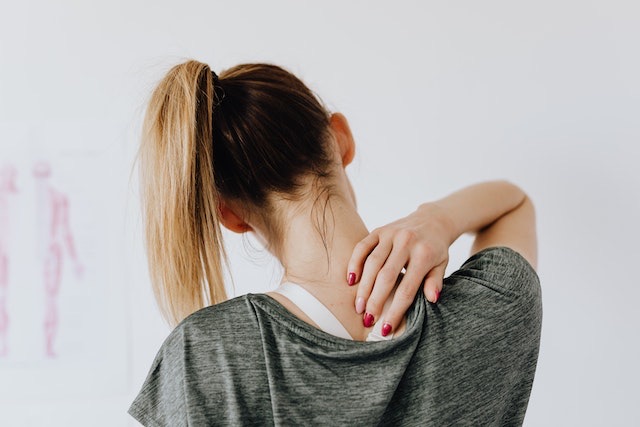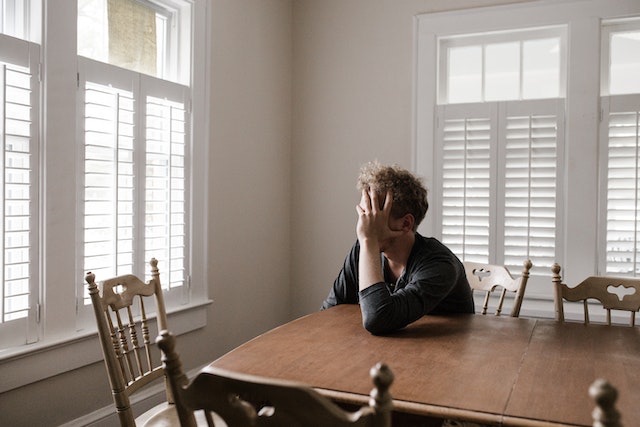The Link Between Back Pain and Depression

Depression and anxiety are widespread problems many of us experience in this day and age. Notably, the possible causes of this debilitating mental condition are varied. In fact, they may be entangled mainly in the way we take care of our physical health. Many people suffering from depression are unfortunately unaware that their lifestyle choices and their impact on their physical health might significantly improve how they feel about themselves. For this reason, we will discuss the link between back pain and depression.
Why it helps to understand the link between back pain and depression
Hopefully, this article will help you pinpoint the extent to which your back pain influences your moods and behaviors. The primary purpose of exploring the link between depression and back pain is to have a clear, unambiguous understanding of what might significantly influence your quality of life without you even being consciously aware of it.
In other words, it could be the case that, for instance, lower back pain might be more than just a result of long working hours or physical inactivity. In fact, back pain might be simultaneously a symptom of unresolved psychological problems and the very thing that is aggravating your psychological well-being. Hence, informing yourself about back pain and depression can help you resolve these problems efficiently.

Depression is a multi-faceted disease with a variety of accompanying symptoms.
The relation between back pain and depression
We all experience periods in life when we feel down and dissatisfied. However, having major or clinical depression is much more complex and damaging than that. Normal sadness or grief tends to get easier with time. In fact, the main difference between depression and normal dejection surfaces in the debilitating influence depression has on your daily functioning. Namely, the physical and hormonal activity of people struggling with depression is entirely different. This means that depression is an illness in its own right.
What are the symptoms of depression?
So, if you have been feeling overwhelming sadness or despair for more than two weeks, you might be experiencing depression. But how does feeling sad relate to back pain? Well, symptoms of depression also include psychosomatic or, in other words, physical symptoms. This means that back pain may be a symptom of depression, a signal that your whole body is suffering. In addition, severe back pain can indicate that you are repressing your depression.
So, yes, the prototypical symptom of depression involves feeling low, sadness, hopelessness, anxiety or excessive concern, or irritability. Yet, there are additional symptoms that are signs of depression. Interestingly, these symptoms and behaviors may give rise to back pain as well.
Your eating habits might change.
People with depression might experience major weight loss because they cannot eat. However, they may also gain weight due to overeating as a coping mechanism. Disruptions in eating habits also give way to physical problems such as fatigue, lack of energy, and digestion problems. In short, the body and mind function in unison. Your metabolic functioning will affect your psychological balance and vice versa.

A healthy diet counteracts the symptoms of depression and gives you energy.
How does this relate to back pain? Lack of energy due to an inadequate diet could exacerbate your back pain as you lose or gain weight. And typically, when you lack energy, you also stop working out. So, your spine might struggle if your weight increases rapidly or you lose muscle tissue.
You may struggle with addiction on top of depression
Depressive episodes tend to make people 'self-medicate' to feel less sad and hopeless. So, people with depression tend to engage in activities that raise dopamine and serotonin levels. For some, this could lead to fixable issues with overeating or excessive shopping. For others, the urge to feel happiness, even for a short while, leads to severe problems with addiction.
Many patients experiencing back pain as a symptom of depression might actually turn to substance abuse to alleviate both the physical and mental pain they are experiencing daily. Unfortunately, chasing the highs usually produces extreme lows later on. Turning to alcohol or narcotics to ease back pain is a temporary 'fix'.
So, the short moments of carelessness or sedation with narcotics will damage your body's already strained functioning. It is necessary to heal your body and your brain, not just run into an addiction to forget your problems. So, rather than taking massive amounts of prescription drugs or illegal substances to ease the pain, it is better to turn toward an exercise routine that you feel comfortable with.

Don’t let depression get you down. Go out and exercise the pain away.
The most optimal way to achieve a mind-body balance is to improve your mood naturally. You could do yoga, kickboxing, go running, or swimming. These activities can be done regardless of your current fitness level and experience.
And it is no wonder people get addicted to their exercise routines. Research shows that exercising blunts the brain to psychological and physical stress due to releasing mood-improving substances such as endocannabinoids.
You might experience sleeping problems
Just as with eating, depression might disrupt your circadian rhythm as well. Waking up might become difficult. Due to this, oversleeping also may affect your emotional functioning. You may feel groggy and unattuned to your surroundings all the time. Furthermore, oversleeping might give way to severe back pain due to a lack of physical activity on a day-to-day basis.
On the other hand, you may also experience insomnia. Undersleeping and oversleeping even go hand in hand. On some nights, you cannot fall asleep due to emotional distress, and your body compensates for the lack of sleep. However, depression makes these sleeping cycles much more disruptive. You may not be able to wake up for hours in the morning, or you may be worsening your mental health by staying awake for hours on end in the night.
All in all, depression is a multifaceted, complex condition that can make an impact on many different aspects of your life. Hopefully, this article brought you one step closer to linking your back pain and depression. From this point on, you can work towards solving your problems in a healthy and efficient way.
Photos used:
https://www.pexels.com/photo/photo-of-man-leaning-on-wooden-table-3132388/
https://www.pexels.com/photo/woman-touching-her-back-4506105/
https://www.pexels.com/photo/woman-stretching-on-ground-3076509/
https://www.pexels.com/photo/portrait-photo-of-woman-in-black-and-white-polka-dot-dress-eating-grapes-while-standing-in-front-of-gray-background-3746265/
Posted In:
Pain Treatment
Chiropractic
Low Back Pain Treatment
Neck Pain Treatment
Headaches
